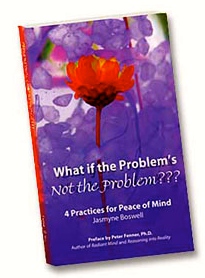Since many of my readers write memoirs, I thought this article, though long, might be helpful.
Positive Light
In a memoir by Pencie Huneke, two key themes are resilience and gratitude. Ms.
Huneke, now 84 years old lives on a barrier island near Venice, Fla., where she raised her five daughters alone after her husband left.
Her memoir describes the “blur of misery” she felt in the early days of their rupture. But her story, Ms. Huneke now says, ultimately puts the experience in a positive light: She made close friends, enrolled in a financial-management course, and met the “love of her life.” She also forgave her ex.
“He and I have actually become friends. How lucky for all of us,” she wrote, in one of the few extracts, she shared with a reporter.
The act of writing about traumatic or difficult events can reduce stress, lessen depression and improve cognitive functioning, according to researchers. Several studies have even shown such writing to improve the function of the immune system.
Psychologists believe that by converting emotions and images into words, the author starts to organize and structure memories, particularly memories that may be difficult to comprehend and accept.
“You can’t simply dump an entire experience on a piece of paper,” says Joshua Smyth, distinguished professor of biobehavioral health and medicine at Pennsylvania State University. Through writing, he says, the memory of the experience can be broken down into small parts, allowing the event to be more easily processed and then laid to rest.
A hidden death
Susan Mayall, now 84 and living in Livermore, Calif., says she tried for years to write about her childhood in Britain during World War II, years that included frequent German bombing raids on her neighborhood. Much of her struggle, she says, involved coming to terms with her mother’s behavior. Early in the war, in 1941, Ms. Mayall’s father, an interpreter in the Royal Navy, died at sea, but her mother never spoke of his death to the children or otherwise acknowledged it until the war ended.
Ms. Mayall shared early drafts of her memoir with her brothers, who objected to her harsh evaluation of her mother. “I struggled all my life to understand my mother’s reactions,” Ms. Mayall says.
What finally put things in perspective, she says, was writing about a particular memory: the moment her mother read the letter from the Royal Navy about her husband’s death.
Ms. Mayall in her memoir describes seeing the letter, without explicitly knowing at the time what it said, and witnessing her mother’s reaction: “She tears [the letter] open, and starts to read. Then she leans forwards and her hands go up over her face. She’s shaking—I can feel her.”
Ms. Mayall says she developed more empathy for her mother as she continued to work on the memoir over the years. In the final version, she acknowledges her mother’s bravery and describes in detail what it was like to raise four children on a meager income in wartime conditions.
When writing about past traumas, the people who gain the most from the experience are those who tend to acknowledge their own problems but can also see other people’s points of view. Over the course of writing, their general perspectives about their topics evolve, says James W. Pennebaker, a psychology professor at the University of Texas at Austin. Making new connections between events in the writer’s life is key, he says.
There are risks. Writing to uncover a deeper meaning in one’s life often requires brutal honesty or authenticity, a sort of self-disclosure that could either be hurtful to other people or cast the author in a negative light. If a writer starts repeating the same topic incessantly or becomes increasingly angry and bitter, it is best to stop, Dr. Pennebaker says.
Some such feelings can’t be helped. “Writing about upsetting experiences can provoke negative emotions,” says Dr. Pennebaker. “It’s much like going to a sad movie. Most people report getting back to normal in an hour or so. If a person is living with a negative experience, they are probably feeling bad much of the time. The writing helps to get them out of that cycle.”
Writing a memoir can also help authors re-evaluate how they want to live for their remaining years, says Susan Krauss Whitbourne, professor emerita of psychological and brain sciences at the University of Massachusetts Amherst. The exercise will sometimes reveal to the writer patterns of behavior that were—or are—harmful.
Past battles
When Paul Wortman, professor emeritus of psychology at Stony Brook University in New York, started analyzing and writing about his life and career, he says he discovered that he had a problem with authority figures. His short temper and past battles with department chairs, he says, were the product of his relationship with his father. Dr. Wortman swore to change his ways.
He ended up revising his memoir at his wife’s request after she read it and became uncomfortable with his idea of sharing it with an extended group of friends. Through careful editing, Dr. Wortman says, the message stayed the same, but some of the details were left out.
Making changes based on who will read the finished product reveals another truth about memoirs: There is a huge difference between writing a memoir for yourself and writing it for an audience. By writing for others, the author may be tempted to omit details or even change the story, compromising the process for the final product. Also, it may be disappointing if very few people take the time to read the memoir.
Still, sharing a memoir in limited circles can be therapeutic, especially if there is a receptive audience. Sharing can strengthen social ties and help friends and family members understand who the writer is and how he or she came to be that way.
The process can also help validate the writer’s experiences and even break ageist stereotypes, says Susan Bluck, a psychology professor at the University of Florida. A child or grandchildren may be surprised to learn their grandparent hitchhiked across the country, Dr. Bluck says, adding, “It feels good when someone is excited about your story.”
Ms. Huneke, in the introduction to her memoir, discusses why she chose to leave a written legacy for her immediate family. Her memoir, beyond a few excerpts, hasn’t been shared with anyone else:
“Perhaps this is an exercise of self-affirmation, that one’s existence has been worthwhile and possibly even memorable,” she wrote. “Or does it have a higher purpose, to fill in gaps for future generations who, one hopes, might care and even enjoy it? Then again, maybe it is only a desire to explain to one’s children just why one is the way one is. It might even be interesting for them to identify characteristics in themselves they may have inherited!”
Enjoy!


